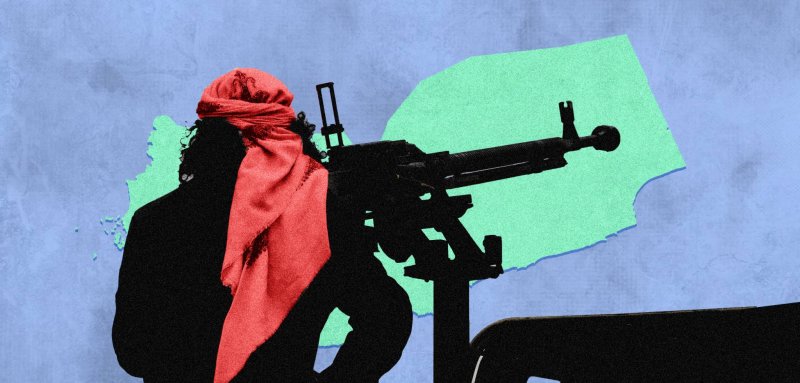Does an inclusive peace process lay the groundwork for a strong nation-state, or is it a recipe for further fragmentation?
Talk of an inclusive peace process for Yemen is all we hear about these days, dominating almost all news outlets, think-tanks, running high on the agendas of policy-makers and stakeholders. This is mostly attributed to the fact the power dynamics have shifted tremendously since the adoption of UN security council resolution 2216; A resolution that placed an arms embargo on the supply of arms to Houthis, sanctioned individuals such as Abdel-Malek al-Houthi and Ahmad Ali Saleh – still key players in the Yemen war and ones that are and will remain part of Yemen’s foreseeable future.
A lot has changed since then, and more scrutiny has been placed on Western governments involvement in the war in Yemen. Just a week ago, a French parliamentary fact finding mission concluded its report adopting recommendations for the need for paramilitary oversight of the executive on arms exports. An end to a culture of opacity regarding arms sales to Saudi Arabia and UAE is a major demand by rights groups and the general public as it becomes more educated and informed on the complicity of their governments in the war in Yemen.
An end to a culture of opacity regarding arms sales to Saudi Arabia and UAE is a major demand by rights groups and the general public as it becomes more educated and informed on the complicity of their governments in the war in #Yemen
As the resolution back in 2015 demonstrates, the sales of arms was only a concern when it was being transferred to Iranian-backed Houthis. More recently, there is growing pressure on the west to halt arms sales to the Saudi-led coalition, where French, US, UK arms-to name a few-have shown to be responsible for violations of human rights and International humanitarian law with grave humanitarian consequences in war-torn countries such as Yemen.
Western governments involvement in Yemen through the export of arms demands a review of Resolution 2216 that not only places Iran under the spotlight for its malign activities in the region, but also establishes a mechanism that would keep western governments military ties and intelligence cooperation with Saudi Arabia and UAE in check. The UK has not escaped scrutiny either as it faces a new legal challenge where campaigners seek judicial review of of arms sales after the court of appeal ruled them unlawful. It is worth noting that resuming arms sales came after the review concluded there had been only “isolated incidents” of airstrikes in Yemen that breached humanitarian law, which was the government’s pretext for their renewal. A UN report also exposes “a pattern of IHL violations” in Yemen by countries that are aiding and assisting parties to conflict.
The map of countries post the “Arab-Spring” is looking more uniform; A little less “nation-states” and a little more of “nations in a state”.
As civilians get caught in the crossfire, Yemen has become more entangled in a proxy war between Shia-ruled Iran and Sunni-dominated Saudi dominance. Regional influence extends to include the United Arab Emirates whose interests are represented by the Southern Transitional Council (STC) in the south, despite their much celebrated “military withdrawal” from Yemen.
STC has declared self-rule in the south and then backtracked in return for representation in a future government – talks are ongoing now. There’s a power struggle over Yemen fueled by decades of separatist sentiments and sectarian tensions between north and south where parties to conflict are consolidating their grip on power with no interest in ending the war; military gains are expected to be translated into political wins. A weakened international recognized government backed by Saudi Arabia has to face rivals on multiple fronts starting with its ally and its erstwhile rival – the UAE, STC controlling the south, Houthis to the north, factions still loyal to Hadi in the south east, tribal affiliations and military factions while loyal to Hadi vying for sovereign rule. As the power dynamics failed to declare a winner in this protracted proxy war, Yemen has proved to be a quagmire for regional and global actors devouring them all with no apparent winner in sight.
Western governments arms exports to Yemen demand a review of Resolution 2216 that not only places Iran under the spotlight for its malign activities, but also establishes a mechanism keeping western military/intelligence ties with Saudi and UAE in check
And the talk now is of inclusive government, inclusive peace process; now that the Houthis control 1/3 of Yemen with 80% of its population living under its control, they are talking of inclusivity.
All wars have one thing in common; flame is ignited internally and then quickly spreads by acts of regional interference for geopolitical gains; it consumes everyone forcing them to the table under what is usually dubbed “an inclusive peace process”. In Lebanon, a 15-year civil war concluded with the same “inclusive” peace process that while it ended the war, it did not win back a nation-state.
The map of countries post the “Arab-Spring” is looking more uniform; A little less “nation-states” and a little more of “nations in a state”.
Raseef22 is a not for profit entity. Our focus is on quality journalism. Every contribution to the NasRaseef membership goes directly towards journalism production. We stand independent, not accepting corporate sponsorships, sponsored content or political funding.
Support our mission to keep Raseef22 available to all readers by clicking here!
Interested in writing with us? Check our pitch process here!



